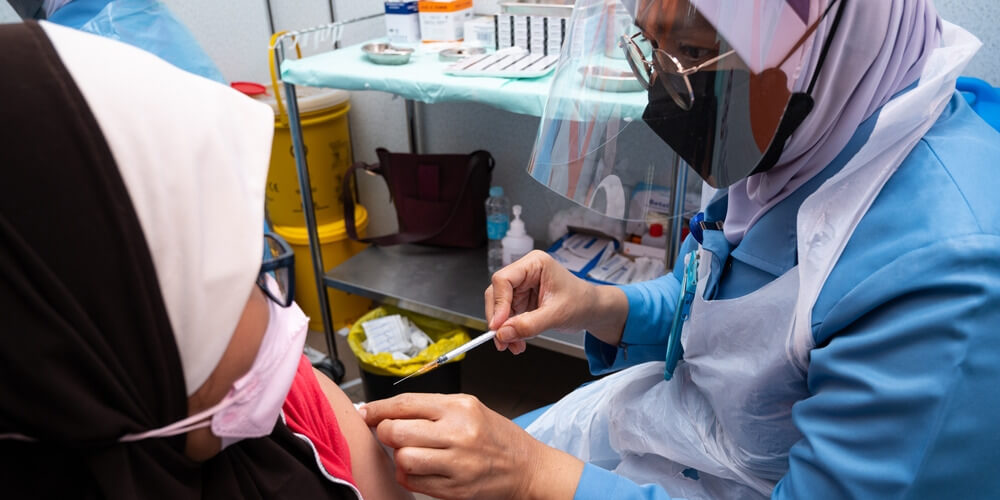Malaysia is securing its position in a lucrative market segment.
Kuala Lumpur: Malaysia is well positioned to capitalise on the growing global demand for halal pharmaceuticals and medical implants following the government’s foresight in regulating the country’s emerging market segment.
Envisaging halal pharmaceuticals as a large and potentially untapped market, Malaysia was a trail-blazer in formally regulating its local sector. Building on the country’s historically robust certification process for food products, the government introduced the Malaysian standard MS 2424:2012 Halal Pharmaceutical Guidelines in 2012.
This set the benchmark for the growth and development of the local pharmaceutical industry that now boasts around 2,000 registered pharmaceutical products. In addition to supporting local markets, Malaysian-produced, halal-certified pharmaceuticals are exported regionally (predominantly to Singapore and Indonesia) and further afield to Japan, China and some European markets.
According to Amrahi Buang, President of the Malaysian Pharmacists Society, halal pharmaceutical exports have witnessed consistent annual growth rates reaching RM401 million ($93 million) in 2019. However, the pharmaceutical industry is in its relative infancy and has significant untapped potential.
Before COVID-19, market observers had predicted an industry valued at RM1.6 billion ($375 million) by 2025. Buang said although the pandemic dented market expansion in 2020 and 2021, positive growth is anticipated in this fiscal year, largely buoyed by growth in Singapore, but also by halal-centric markets such as the Middle East.
Halal pharmaceuticals sales are not only seen among Muslims, but from others who are indirectly targeted by the expanding halal industry. One example is the blood thinner heparin where, from its introduction in the 1930s, had a bovine origin.
However, concerns regarding transmissible spongiform encephalopathy during the Mad Cow Disease epidemic of the late 1980s led to the withdrawal of bovine heparin in the United States and a switch to porcine-based products.
Now, reliance on a single source of origin creates a vulnerability to the market should a similar disease affect animals used to produce medicinal products. To safeguard supply chains, the US Federal Drug Administration (FDA) is encouraging the re-introduction of bovine-origin heparin – effectively offering a sizeable potential market to halal manufacturers.
“Supporting the local halal industry has always been a Malaysian government priority,” said Amrahi.
The Halal Development Corporation (HDC), incorporated under the Ministry of Finance, provides a framework designed to nurture the halal economy in various key sectors including pharmaceuticals and medical devices. Key support programmes include targeted funding and tax incentives. Other benefits like halal business parks generate local ecosystems to support company growth in synergised environments that benefit from the specific infrastructure and proximity to other halal manufacturers.
Despite denting the overall economy, COVID-19 paradoxically played an important role in further distilling efforts within the local halal pharmaceutical sector, particularly in developing a parallel local vaccine industry.
Leveraging on the existing halal certification processes, refinements to cover vaccine production were introduced in 2019. Realising this objective commenced in earnest last year with the country’s largest pharmaceutical group Pharmaniaga Berhad awarded the exclusive rights to local “fill and finish” the China origin Sinovac. This product proved to be one of the cornerstones within the local vaccine programme.
The National Vaccine Development Roadmap (PPVN) and recently launched Malaysian Genome and Vaccine Institute are attempting to stimulate research and development into local origin vaccines.
The Bilateral Investors Agreement with the Coalition for Epidemic Preparedness Innovation (CEPI) will enable Malaysia to directly access vaccine technology and transfer and develop expertise among local researchers. Nine companies have been approved for manufacturing licences or incentives and it is anticipated the first Malaysian origin COVID-19 vaccine should be launched in 2024.
This is an important step towards achieving vaccine independence and, given the current worldwide appetite for effective vaccines, this will be a key driver for growth in the halal pharmaceutical sector.
© SalaamGateway.com 2022. All Rights Reserved


Nurul Amanina Muhamad Suhaini